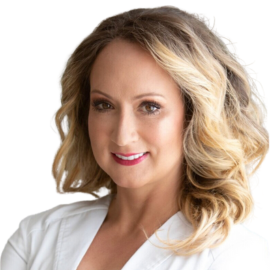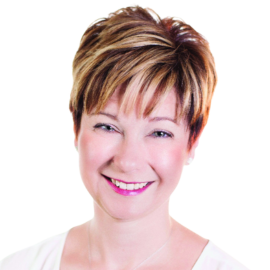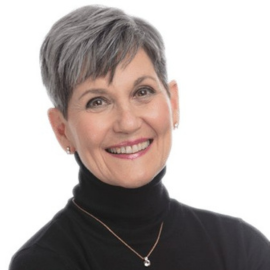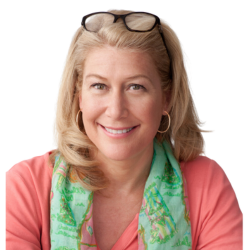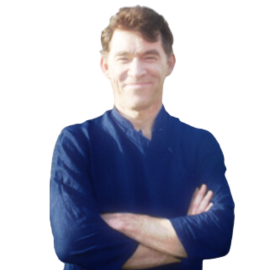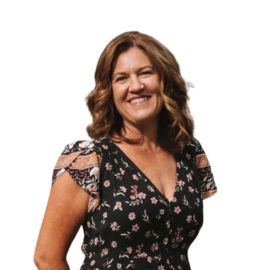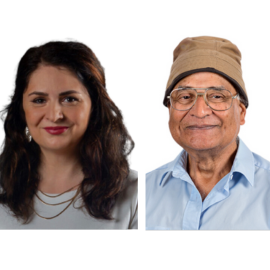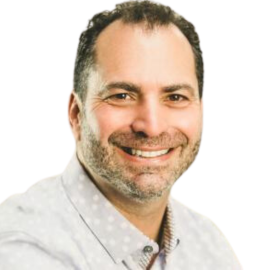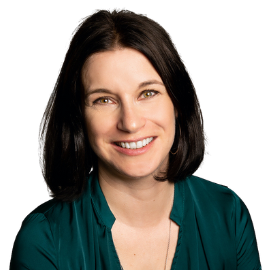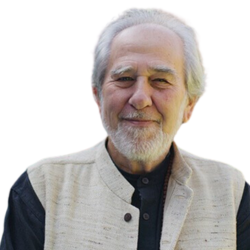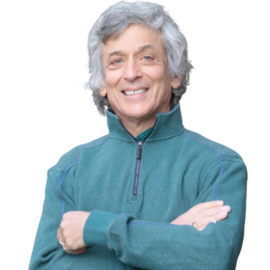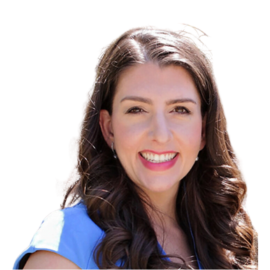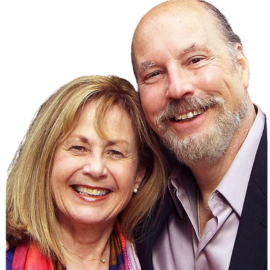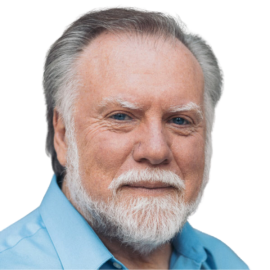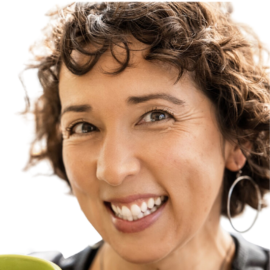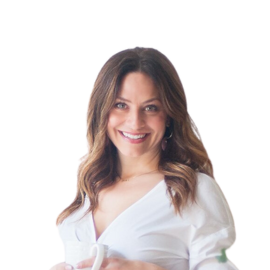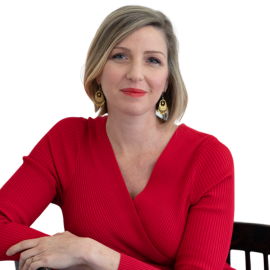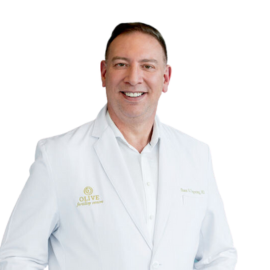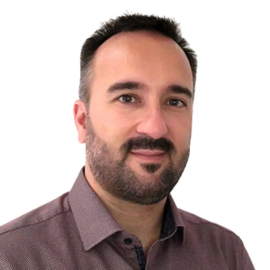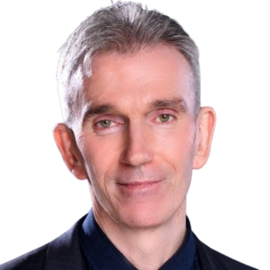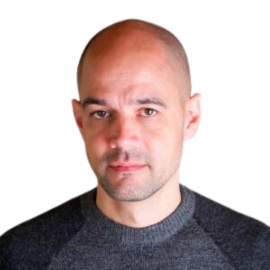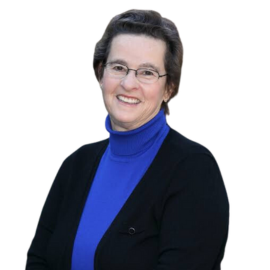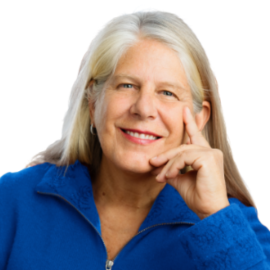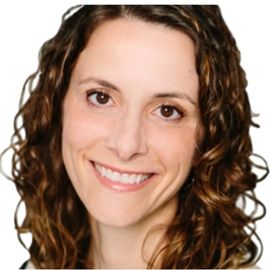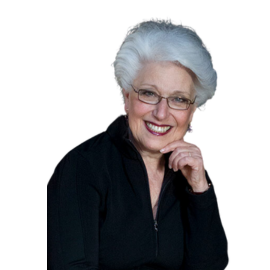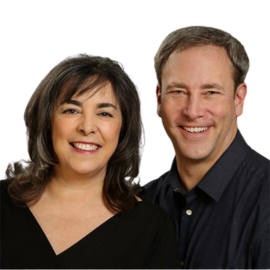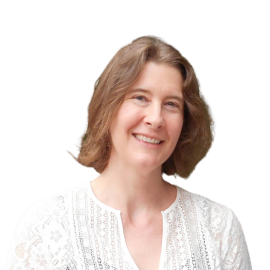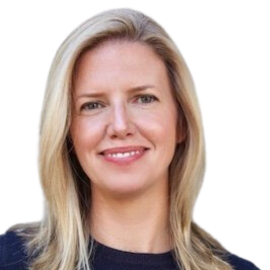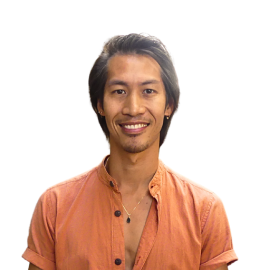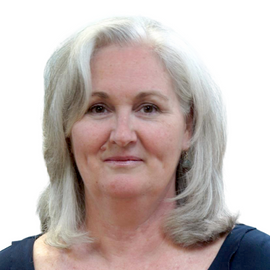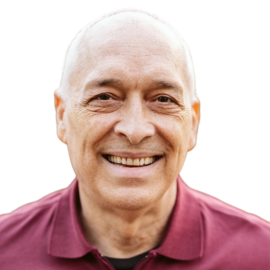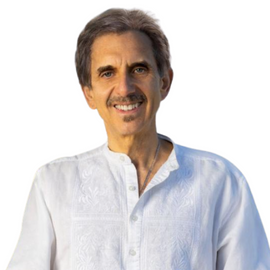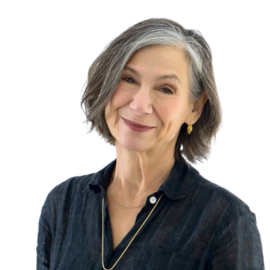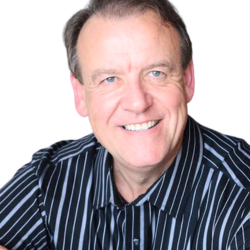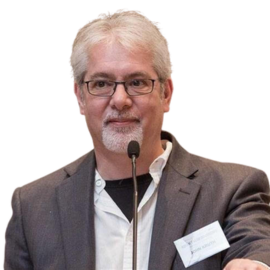All Episodes
Join Dr. Lorne Brown, each week to learn how to put the “mind” back into “mind-body”, to influence your body and autonomic nervous system, and turn on and off genes for health, longevity, and peak fertility. If you’re struggling to get pregnant, looking for simple tools to tap into the power of your subconscious mind, and birth a life filled with joy, this is the show for you!
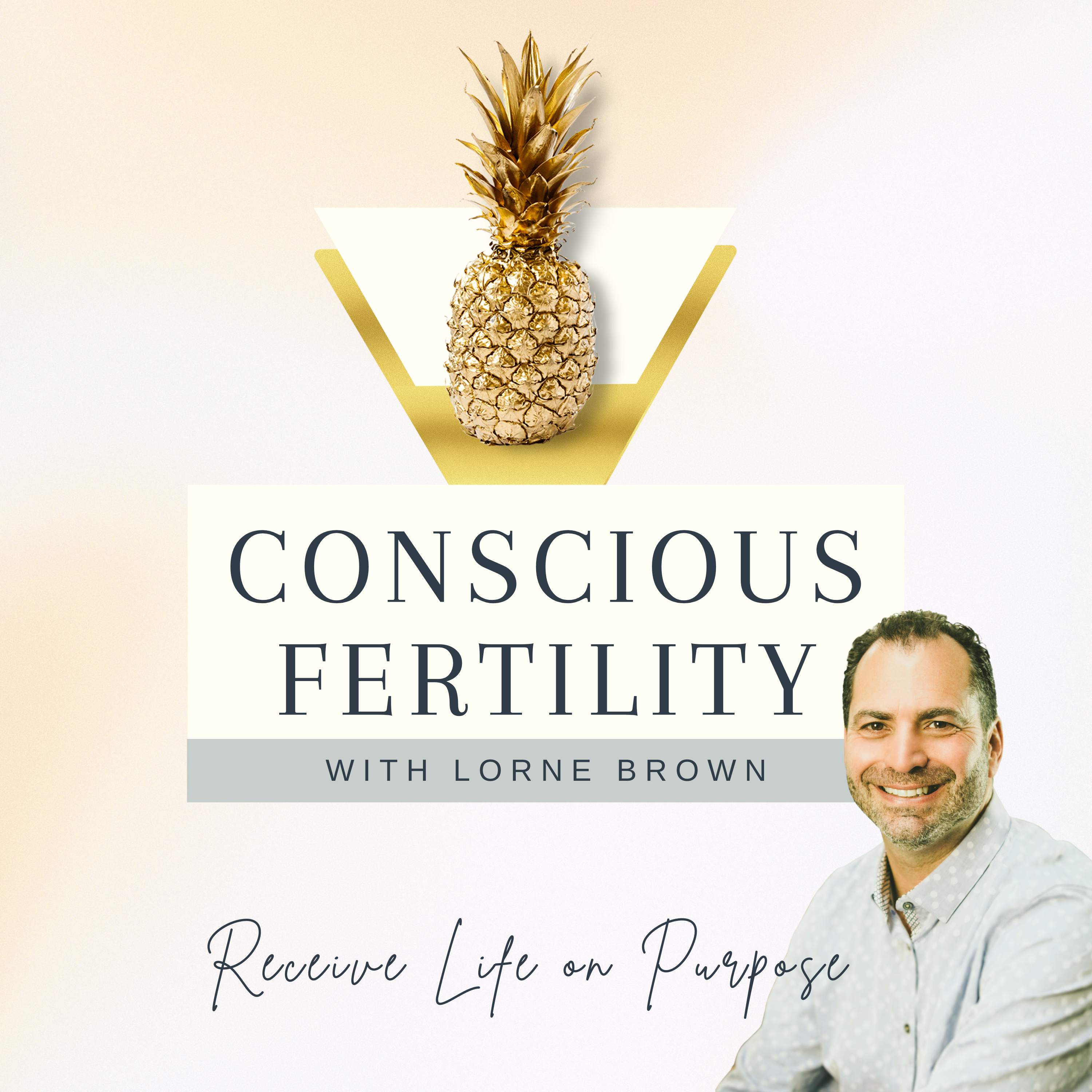
Featured Episode
Solving Anxiety with Michelle Biton
In this episode of the Conscious Fertility Podcast, host Lorne Brown engages in a conversation with health coach Michelle Biton about coping with anxiety and stress. Michelle shares her personal journey of helping her daughter manage anxiety and how it led her to develop a five-step program called ALARM to address and manage symptoms of anxiety. The discussion delves into the intricacies of the parasympathetic and sympathetic nervous systems, offering practical techniques to activate the parasympathetic response and mitigate anxiety symptoms.
Season 1, Episode 72 | 55 min
Episode Transcript
Lorne Brown:
By listening to the Conscious Fertility Podcast, you agree to not use this podcast as medical advice to treat any medical condition in either yourself or others. Consult your own physician or healthcare provider for any medical issues that you may be having. This entire disclaimer also applies to any guest or contributors to the podcast. Welcome to Conscious Fertility, the show that listens to all of your fertility questions so that you can move from fear and suffering to peace of mind and joy. My name is Lorne Brown. I’m a doctor of traditional Chinese medicine and a clinical hypnotherapist. I’m on a mission to explore all the paths to peak fertility and joyful living. It’s time to learn how to be and receive so that you can create life on purpose.
Welcome to the Conscious Fertility Podcast. Today I’m here with Michelle Betong. She holds a master degree in holistic nutrition. She has a bachelor’s degree in psychology certificate in kinesiology in health and fitness studies, and her passion is writing self health books and empowering people to push through their obstacles to become the best version of themselves. She’s a firm believer that we are all capable of change, and her latest book is The Instant Anxiety Solution. And for those that are watching on video, I’m holding a copy of her book up. Thank you Michelle for sending me a signed copy to my listeners know and many of the guests on know that I collect books that get signed by the author. And this book is really an essential quick fix resource for those looking to manage their general anxiety symptoms as part of their health plans. And Michelle is our past crossed a bit because you used to be around Vancouver and we have some friends in common. So it’s neat how years have gone by. And here we are talking about a topic I think is important, anxiety. So welcome to the Conscious Fertility Podcast. Michelle,
Michelle Biton:
Thank you for having me.
Lorne Brown:
Now for our listeners, about one third of our episodes are very fertility focused, where we’ll bring a fertility expert on, and then two thirds are on basically consciousness. And this is one of those episodes that we’re going to focus on basically anxiety. So anybody can benefit probably from listening to this or will at least find this of interest. And obviously if you’re trying to grow your family, I believe that if you can help regulate that autonomic nervous system and manage the Simpson anxiety, it will benefit you as well on that journey. Michelle, I’m curious, what’s your personal story with anxiety and led you to write this book, the Instant Anxiety Solution?
Michelle Biton:
That’s a very good question because it’s a very personal story. And speaking of family, my oldest daughter, she suffers terribly from anxiety. She actually has special needs and for 10 years I had to stop working and focus on helping her get through her anxiety and helping our family get through the crisis of her anxiety. And in fact, what I call a secondary anxiety, I suffered a lot from it as well. So I wrote the book because I figured out how to conquer our anxiety and how to get on top of it, which took a lot of hard work. We tried every kind of natural and allopathic treatment that was out there and nothing worked and I just had to keep plugging through until one day I talked to a very good friend of mine who happens to be a therapist in dialectical behavioral therapy, and she said a couple of things to me that just went, wow. And I had my wow moments and I tried what she taught me and I thought, you know what? If it’s helped me, I can really help other people. So I created the instant anxiety solution, the five step program because again, so many of us are suffering from anxiety. I’m not alone, but I know I’m not just school taught. I lived it. I lived the real down and dirty of anxiety and pushed
Lorne Brown:
Through. That’s the key. You pushed through and you had these tools that you had to find or develop to help you push through.
Michelle Biton:
Absolutely.
Lorne Brown:
When people come into my practice and they say, I feel anxious, I want you to help me resolve my anxiety, one of the questions I always ask is, how will we know what we’ve done has worked? How do you define anxiety and what are the objective and subjective symptoms? So can you share a little bit more about this general term anxiety and then what are some of the signs and symptoms that people experience that you’re calling anxiety?
Michelle Biton:
Well, it’s interesting because it’s not a one size fits all. Solution. Anxiety shows up in different ways to different people. It’s almost like there’s a spectrum, and it could be simple like feelings of anxiousness, like sweaty palms, a rapid heartbeat, trouble staying focused. It can be getting feeling nauseous, feeling agitated, irritated. It can also get to the point of having panic, panic attacks, avoiding people, avoiding certain situations. And the interesting thing about this, and I talk about it in the book, and this is what I help educate people, is we actually need a certain amount of anxiety to function. And I remember my DBT friend said to me, and in fact she said that that level is really quite high where I would kind of lower it a bit, but she said, you want your typical anxiety level to be around a four. It was six.
And that feels quite high to me when you know what anxiety feels like, that’s almost like an uncomfortable feeling. So the whole idea here is if you didn’t have anxiety, you wouldn’t be able to get out of bed in the morning. You wouldn’t be able to go about your day getting to work on time, getting your assignments done on time, getting your work projects done on time. So it’s almost like changing your relationship with anxiety, befriending it in a different way so that anxiety isn’t so much a bad thing, but it’s something to learn how to manage. And that’s what I teach a lot about in the book is how to manage that anxiety. So again, it’s a spectrum. It shows up in different ways for different people, but the idea is that we don’t have to sit in that uncomfortable place. There are lots of things that we can do to bring it down to a healthy level.
Lorne Brown:
And we are going to go into some of those steps that you share in your book. You reminded me when you say that there’s a spectrum and your CBT friend said that it was the cognitive behavior therapist said six out of 10, I’m kind of like you two in that spectrum. A three is probably a nice number three to four for me, right, exactly. We see this cortisol, one of our stress hormones gets a bad rap, but cortisol is meant to go up in the morning. If you don’t have a rise in cortisol, you’re not getting out of bed. And so it reminds me of a story of Bruce Springsteen, which most of our listeners I think know of a famous singer, you and I anyhow, really popular in the eighties and nineties and still is. So he shared a story that if he doesn’t feel anxious before a concert, then it’s a dud.
It is not a good concert. So he expects to have that feeling and he describes it as butterflies in his stomach. And then I’m going to bring in another self-help guru Gabby Bernstein, who’s written many self-help books on consciousness and around happiness. She shared that the feeling of excitement and anxiety are very similar. They’re very similar feelings. And so I think what Bruce Springsteen was feeling was what we would call when it’s a three to four out of 10, that’s that excitement. And when it gets to that six or seven, that starts to feel uncomfortable like anxiety where you don’t have the focus to move forward sometimes. And so part of it is realizing that like you said, it’s a spectrum and we’re going to share with our listeners how you can change that perception. And really I think what you’re talking about, because you talk about it so much in your book, is the nervous system, the sympathetic, the fight or flight and the parasympathetic, the rest and digest, also known as the breed and feed for those that are looking to reproduce, breed and feed system. So can you talk more about the symptoms and go in a little bit about the nervous system. I like how you it and talk about it in your book as well.
Michelle Biton:
Yeah, and I think a really important point to mention is, for example, I’m doing the talk right now and my palms are very sweaty. I’ve got that kind of nervous feeling in my stomach and it’s knowing how to work through it and push through it. But when anxiety gets to the point where it’s taking over and you can’t manage it where the feelings are kind of overwhelming you, then that’s the point where you want to step in. And that is exactly what you want to do. You want to start with the nervous system. And that was one of the key things that my girlfriend talked to me about is when I couldn’t figure out how to take charge of my anxiety, I was always trying to approach it like it was logical. But anxiety is not logical. You cannot think or outthink anxiety when it’s in your body.
The first step, and this is what I talk about in the book, is you have to bring it down. You have to deal with the nervous system. And when you get anxious, the parasympathetic, sorry, the sympathetic nervous system turns on, it goes, it’s almost like you’ve got the gas on the car, your pedal goes down and the sympathetic nervous system, all the hormones go through your body and you start to feel that fight or flight mode. So it’s a very protective instinct and that’s a good thing because it gets us out of danger when we need to get out of danger. But the problem is sometimes the situation is mismatched from the feeling. So you’ll go in front of people or you’ll go on a podcast or you’ll go on a date or you’ll go to a doctor and that anxiety, that feeling like you want to run and get out of there happens, but it’s not appropriate for the situation.
So you want to activate your parasympathetic nervous system and your parasympathetic nervous system is like the brakes on the car that is your nervous system that helps us to relax, to calm down, and in fact it helps us to digest our food. So it just slows our body down. So what we want to do is we want to learn how to activate that parasympathetic system on demand so that whenever we’re feeling those anxious feelings that we can take control, that we can take charge of how our body is feeling. And this is what I am a firm believer in teaching hacks, teaching simple ways that you can hack your nervous system safely and effectively so you can take control of those feelings of anxiety.
Lorne Brown:
And I like your tools. It is a hack. I’d love to unpack mine hacks, right hacks. And I want to unpack what you said. So there’s a situation that happens like you said, you’re giving a talk in front of a large audience for example, because that’s a common fear, right? Public speaking and your sympathetic nervous system thinks it’s in danger, it goes into alarm. And like you said, it’s not always appropriate. And I like to use the term that there’s no survival benefit. So your system goes into alarm as if you’re about to get attacked by a large animal like a saber tooth tiger idea. But in this case you just have a deadline at work or you have an unsuccessful fertility treatment or you’re going to do something at work or it’s above your skillset and your body goes into this sympathetic overdrive survival, but there is no survival benefit.
But the hormones that get released are no different than if you’re about to have a life-threatening experience and need to get out of there. And those hormones over time lead to chronic inflammation. They impair our immune system and inflammation leads to so many diseases impair our immune system, which we need to stay alive. And you talked about our gut health. So blood is diverted from our digestion, blood is diverted from your reproductive system and in your book you described so well that we go from a whole brain where we have access to creativity to that reptilian brain where our frontal cortex shuts down and now we’re real survival mode. And so these hacks are to tell your nervous system you’re safe and to get out of that reptilian brain so you can access those creative aspects of your body. And when you’re in that parasympathetic nervous system, our listeners have heard this because we’ve talked about this on other episodes actually Steven Porges is a great episode to listen to where he talks about the polyvagal theory about the fight, flight or freeze, and he goes into detail on that.
So if you like that topic, listen more on that. And when you get into the parasympathetic, that is our healing nervous system where blood goes back to our gut, goes back to our reproductive system, back to our extremities. So there’s so much benefit to going into the parasympathetic nervous system. So I would love to hear because you have a great acronym for your tools to help people get out of that sympathetic fight or flight survival mode into that parasympathetic the rest and digest, read and feed. And I want to emphasize this. We’ve said this on other episodes when you’re in sympathetic and like you say, it is not a bad nervous system, it keeps us alive, right? It’s just that when it’s constantly being triggered, it leads to gut health issues, sore muscles, headaches, poor sleep, fat around the belly, all those things. It’s just that it’s always activated. We’re in sympathetic overdrive. And so when we get into this parasympathetic, I want to hear more about your tools because when we’re in sympathetic, our resources are diverted for survival. So they’re not available for healing, for creativity and reproduction. And when you use tools like you share in your book, you retrain the body through these mind hacks go into parasympathetic, which frees up these resources for healing, creativity and reproduction. So can you share your acronym and then let’s get into some of the tools for the listeners?
Michelle Biton:
Sure. And I’m just going to say one more important thing for your audience that I feel would be very beneficial. Going back to the parasympathetic nervous system you can get, the goal is to get your body to that parasympathetic state and keep it there as much as you can to stay in that parasympathetic state or I’m going to talk about this, what we call a high vagal tone and that would help to facilitate better health and all that you were saying, Lorne. So that would be a good goal. So the five step program that I’ve created is called alarm. So what I teach people as soon as they start to feel that anxious feeling coming into their body to activate the alarm and the alarm stands for activate label, acknowledge, remember, and move. So first we want to activate the parasympathetic nervous system. That’s that step one.
And I will teach a couple of little hacks that you can use. So there’s something called the vagus nerve. And the vagus nerve is your main nerve in your parasympathetic nervous system. And that nerve is really, we want to be able to hack the nervous system and activate that vagus nerve as quickly as possible. And the more you do it, the quicker that you can get into that parasympathetic state and the more calm and resilient and healthier you will feel overall. So that vagal nerve is a really important thing to focus on so that you can activate this nerve and quickly get to that state and stay there. And the more often you practice it, the easier it will get to that parasympathetic state. I say it’s almost like when you go to the gym and you train your biceps, okay, exercise, repeating it over and over makes the muscle stronger. The same thing with the vagus nerve. So you want to practice doing these things often so that you can get to that calm state faster and you can recover from stress easier. It increases our resilience.
Lorne Brown:
I’ll share with what you said because you said as you practice it becomes easier. So there’s a saying that the longer you do it, the easier it becomes, the easier it becomes, the longer you can do it. And really what we’re doing is we’re rewiring the brain in neuroscience, they talk about wires that what is it? Synapsis that fire together wire. And so we are rewiring the brain and that’s why if you practice this, it’s those small actions lead to big results as Michelle is sharing. If you practice these tools daily, multiple times a day for several days and weeks, so they become habits, meaning they get imprinted, they get wired into your brain, you no longer, that’s your new default. So your default now is alarm, fight or flight. And you’re sharing that you can hack the nervous system and retrain it. So that is your new default. So since that feeling comes up of alarm not feeling safe and right away you can say, oh, this is just a major deadline at work. There’s no survival benefit here. I can run through these tools. And eventually within seconds you’re out of that state of alarm and you’re now like Bruce Springsteen, you’re at a three out of four where you’re going to do the best work versus a seven out of 10 where you’d become paralyzed or you run away.
Michelle Biton:
Yeah. And you’ll be amazed because you’ll find that things that once bothered you before don’t bother you as much. I love it. And if they do, you recover much faster.
Lorne Brown:
Because my background is in clinical hypnotherapy. You are rewiring the subconscious with this because I always say one of two things happen when you do conscious work. One is your perception to the situation changes, meaning it no longer bothers you. You may not like it, but you’re not triggered. So you’ll find that you become slow to trigger things that used to trigger you like quickly zero to eight or zero to 10. Now you notice it, it’s a zero to one or a two. There’s really not a trigger. And so I’m glad you shared this. These hacks, I believe done over time will rewire your brain. And you know this because you just said they won’t trigger you anymore. You won’t react.
Michelle Biton:
It will make a profound difference. And this is the reason I wrote the book is because I am walking proof this works and I really believe that a lot of us are suffering, and these are simple tools. So for example, one of the, and again, it’s not a one size fits all. There are different ways to hack your nervous system and activate that parasympathetic nervous system and you have to find what works best for you. So there’s lots of different ways to do it. My favorite technique that works instantly that really helps me is I use my air, I pull back like this and it instantly allows me to activate my parasympathetic nervous system and hack that so I can take charge, I can bring my sympathetic nervous system right down and calm down instantly.
Lorne Brown:
Now for those I can’t see what you’re doing, I want to share that the video given the code to Michelle, so it’s on her website and I’m also going to put it on LorneBrown.com website where we put all our podcasts and my clinic Acubalance. So you can see the visuals. I love the fact that you go to the, because Chinese medicine, another thing that I love to practice and trained in, we do ear acupuncture and it’s now understood that there is a vagal relationship to the ear. Exactly. So when you massage it, pull on it, you’re activating the vagal system, nervous system, which is your shared as part of the parasympathetic. Exactly. That’s why when I do conscious work, my practice, I always use the ear points as part of it to induce the parasympathetic get you from sympathetic, parasympathetic from high beta brainwaves to those alpha brainwaves.
Michelle Biton:
Exactly. Can you
Lorne Brown:
Describe what you’re doing with the ear? So people
Michelle Biton:
Who are listening? So again, this technique works really well for me when I do it on people, they take an instant deep breath, they just instantly relax and that’s the reaction. So what you’re doing is you’re just giving and you’re not tugging, you’re not yanking, but slowly pulling back along the line of your body. Some people can pull the skin behind the ear back, and again, you’re looking for gentle, it’s nothing. You’re not turning a switch on. So you’re making, you’re not yanking, it’s just a gentle tug and it just allows you to take a deep breath of air. The lungs just fully expand. Now there are different ways in the ear, like along the crease you can put your finger in and rub in a circle upwards or pull back inside. But again, my favorite technique is just pulling back. Now again, if we talk about a spectrum, if you look at anxiety, there’s a way to easily activate your parasympathetic nervous system is to focus on your senses.
And I don’t like to just focus on the five senses. So we’ve got the sight, the smell, the taste, the touch, the sight. I also like to talk a lot about proprioception because I, again, coming from more of a, I’ve done a lot of work with special needs and sensory integration and deep pressure. I find those are really important. That’s a really important sense for us that often gets missed. But we again, so the more we activate these senses, the more they can get us to that parasympathetic state. So I’ve got my lotion here, so taking a little bit of cream, rubbing it on the hands. Oh, you’ve got cream too, Lorne, great. It’s got a delicious smell to it. Lorne, does yours have a smell?
Lorne Brown:
Yeah, I get a scent. Nice scent as well. So
Michelle Biton:
That smell, what you want to do is you want to get that favorite smell or that just that thing that makes you go in that happy place, that good feeling. So that activates your sense, something so simple. Or some people get sour candies, something to activate your taste, a favorite food or a treat or a sour or a gum, something that gets that sense. Activated lip gloss. I’ve got my smelly favorite lip gloss that makes me go like it just is divine to put on. And in fact, the lips have an amazing amount of parasympathetic nervous fibers attached to them. In fact, the lips are even more sensitive than our fingertips. That is a great way to activate your calming nervous system. So all these are great hacks that you can use and there’s many, many more, but these are great simple hacks that you can use to calm your nervous system when you’re not very anxious.
Lorne Brown:
And there’s a few in your book that I like I want to highlight. I use ’em in my practice and they’re always with you. The breath. Yes. And humming I like because there’s your link hum. And we have an episode on our podcast as well about sound healing and humming to engage that parasympathetic. Talk a little bit about the breath.
Michelle Biton:
So breath work, a lot of us have heard about breath work and it really, really works. It’s really just slowing your breathing down, slowing your inhale, slowing your exhale. And it’s that box breathing where you can really bring that feeling down. I just want to go back to stimulating the vagus nerve. So when we talk about sound singing, getting singing loud, you don’t have to be a good singer, but I even say sit in the car and just sing, sing loud. Put your favorite music on. So singing, humming, gargling, anything you can do on the back of the throat to activate that vagus nerve, getting that vibration happening activates the vagus nerve. So we’ve got breathing, we’ve got singing, we’ve got gargling, we’ve got humming. Even silent screaming is a great technique that I encourage people to do. It’s just again to activate that parasympathetic nervous system.
Lorne Brown:
And I like everything you share is simple. So I want to just emphasize the humming we know can engage the vagal tone. So there’s that parasympathetic and it was the episode by Jonathan and Andy Goldman. So they have a talk called the transformative Power of sound, and they go through detail. So it’s all on humming. So they’ll teach you how to really hum for the vagus and in the breath. I always like to emphasize a longer exhale. It’s got to be comfortable, deep inhale hold, and a long exhale because we now know through heart rate variability research, it’s the long exhale that engages the parasympathetic. So it’s okay to let it go that excel as long as it’s a comfortable in and out
Michelle Biton:
Breath and slow it down 50% to really bring it down. Now I want to talk a little bit more about what to do if you’re feeling very anxious. Because if you’re feeling very anxious, I don’t find those techniques are the right techniques to implement at that time. So when you’re feeling very, very anxious, I’m a really big believer in cold therapy in really applying that. If you can imagine if you’re in a hot shower and the hot water gets turned off and it goes to really cold, it’s that shock value that is that cold that we want to shock the nervous system. I actually had to use this a lot on my daughter to get her out of really, really anxious states. But if you are feeling a lot of anxiety, cold therapy, ice works really, really well. Put ice on the back of your neck, put ice on your cheeks.
We have something called a dive response as well, that if you put the ice on your cheeks and hold your breath a little bit, then your body actually thinks you’re diving underwater and slows your body down, activates that parasympathetic state on its own, just simple ice. So jumping in a cold shower, jumping in a cold pool, putting your hand under cold water, splashing your face with cold water, any cold that you can get. And again, I say to people, it’s not something you want to go, oh, just putting a little bit of cold. You want to immerse yourself in cold to get that shock value, to calm the body down, to activate the parasympathetic nervous system because
Lorne Brown:
It’s, you’re doing a state change, right?
Michelle Biton:
You’re doing a state change and sometimes Lorne, you might want to talk to people about this is sometimes people’s nervous system gets stuck in that sympathetic state and it is harder to bring it down. So what we want to do, I actually find that intense exercise works very, very well. Obviously you want to do it in a safe way, but exercise like sprinting, that works really well. That’s my go-to technique. If I’m feeling really, really anxious, I just open the door and I sprint down the block and then I do my box breathing and I’m a whole different person.
Lorne Brown:
In Chinese medicine we have the yin yang theory. Most people know that tai chi symbol with the half is white, half is black with the Dotson side. And one of the theories is extreme interns into yang, extreme yang turns into yin and they’re actually points have been studied in acupuncture that engage the sympathetic and then turns into parasympathetic. And that’s kind of what you’re doing. That state change. When you put the ice on, it’s a shock. It’s a sympathetic, but it gets you unstuck. And then you go into parasympathetic. When we see wild animals, when they go into fight or flight after ducks fighting in the pond or a zebra that’s been chased by lions, the ducks go and shake it out or the line will, the zebra will go to the water and shake it out and go from that sympathetic now into parasympathetic, they release.
And so that extreme exercise is you have all this energy because what’s happening when you’re an alarm, when you’re in sympathetic is massive resources are getting ready to fight or flight. But if you’re sitting at your desk, you’re worried there’s no release and your ice pack and that sprint is a way to release all this energy and once it’s been released, and that’s why I think your other tools are important. So we’re going to go into the whole alarm. Once you release it, you still got to get, like you said, you can’t think your way through this. We got to get out of the mind into somatic, into the body. So these memories in this trauma that’s stuck in the body can get released. But I always like to understand why I think something’s working. And Chinese medicine has this great understanding, extreme y, extreme yang y. So dry ice burns after a bender at night with so much fun, you’re hungover and tired, you go to the other side. So the ice and that sprint is a sympathetic thing, but like you said, you shock the system and you get it unstuck. And what follows now, because what’s supposed to follow is sympathetic. The thread is over and now back to parasympathetic. And you’re sharing, you’re stuck in this sympathetic and you’re helping it move through that stuckness to get back into parasympathetic. I love it. Yes, please continue. This is great stuff.
Michelle Biton:
Okay, so once you’ve activated your parasympathetic state, and this, it sounds so simple, the next step label what you are feeling. It sounds like a really, really simple step, but it is not simple. A lot of the time people aren’t aware of what they’re feeling. And it’s that same idea as if you don’t know what you’re feeling, you can’t fix it,
Lorne Brown:
Name it to tame it, label it. I love it. Name
Michelle Biton:
It to tame it. Exactly. So what I teach people is often feelings and emotions. A lot of the time people are taught to avoid it or it’s been uncomfortable and they don’t like to deal with it. So it’s a lot of not dealing with it, pushing it aside. But what we want to focus on is identifying it, labeling it. If you don’t really know what it is, sometimes you can look to what’s called your action urge. Look at what behaviors you’re doing. Are you hiding? Are you avoiding what is going on to try to understand what it is you’re feeling. So the next step is labeling what you’re feeling. And they actually say once you can actually label it and put name to it, then you’re halfway to solving the problem.
Lorne Brown:
I like it. And it’s simple, simple. And you talk about how these are simple steps and as people are listening like this is so simple, this is the only risk to this work. It is so simple that you’ll dismiss it, that you won’t do it. But really, come on everybody. Aren’t you tired of things being difficult and complicated? Do you want to have something that simple? So it’s simple meaning anybody can do it, it’s not easy, otherwise everybody would do it. And it just requires a little bit of discipline to start this new habit. And as we said at the beginning, small actions lead to massive results in this case. So if you do this daily, synapses that fire together, wire together, you’re going to create new habits, new wiring in the brain, and then this will be your new default.
Michelle Biton:
Calm. And I’m a coach, that is what I do. I’m a coach. I believe in people. We are all capable of change. I’d say 95% of people wish and want and they avoid the doing. They avoid moving into that place of change. And change isn’t easy and subconsciously a lot of the time we avoid doing the things that we need to do to change. So these five steps that I’ve created are simple. There is nothing complicated. This book can, teenagers can read it. It’s not complex. It’s really simple. But these steps work. They work and they make a difference.
Lorne Brown:
You say a teenager can read it for allowances and stuff. I sometimes pay my children to read books. That’s how they get their allowance. So this was their allowance this week, extra allowance. That’s great. They have to read it and give me a book report.
Michelle Biton:
Well, you know what, these are life skills.
Lorne Brown:
They’re life
Michelle Biton:
Skills. This are life skill.
Lorne Brown:
So your five steps alarm. So you talked about activate your parasympathetic nervous system and then name it to Tam. You call it label your motion, right? So there’s our L. And then probably my favorite step because agree, the crunch work I do is aid how you acknowledge emotions are temporary.
Michelle Biton:
I agree this step is magical for people. And again, it’s simple but very effective. And that’s acknowledged that emotions are temporary. So it’s this whole idea. A lot of the time we think the emotions, these feelings are big and scary, so we avoid them. But the actual fact is emotions are temporary. They come and they go, they don’t stay around. So in fact, it’s found that physiologically an emotion only takes around 90 seconds to go through the body. Meaning when you have an emotion, it goes through the body and then you’re done with it. And that leads me into the next step. But I’m going to hold this for one second. So so much of the time, again, we avoid these feelings, but the actual emotion, I give it up to seven minutes that somebody will go through that emotion and then it’s finished. And a lot of the time in that time when people’s experiencing the emotion, that is not the best time to solve your problems. So I tell people to wait that seven minutes and then solve the problem. So if you’re okay with that, Lorne, I’m going to go into the next step is called remember to avoid layering. So what’s happened is a lot of the time when we feel an emotion, it goes through the body and it’s our own thoughts and emotions that keep the emotion alive.
Lorne Brown:
We’ve been triggered and I want to share that 92nd neuroscientist, Dr. Jill boat, Taylor heard Ted talk stroke of insights. The first talk that I think went viral that kind of broke the internet on a TED talk. And we have her episode six, harnessing the power of your brain. She wrote a new book and she talks about that 90 seconds. And so as you share, you get triggered. There’s a chemical reaction that will run through the body in 90 seconds. But because we keep thinking and triggering it, we keep reprinting and reprinting it. And really what you’re talking about is how are we going to interrupt the story? How are we going to interrupt the trigger so it can move itself through and not stay in the cell? So let’s talk. We’re on A and R now, right?
Michelle Biton:
Yes,
Lorne Brown:
Exactly.
Michelle Biton:
In your opinion. And she talks about is what I like about it is she said anything after that 90 seconds is your own choosing. Yes, she uses the word choosing. So meaning it’s a choice to continue to keep that emotion going.
Lorne Brown:
Now I want to unpack that a bit because it’s so subconscious. It’s not like we’re addicted to it and it’s happening on a very unconscious level. And I’m going to modify Viktor Frankl’s quote that he, so I’ve taken a quote he has and I’ve modified and he says, or I’ve modified it for him to say that in every situation you either unconsciously, habitually react or you can choose to consciously respond. But we need tools to interrupt the story. And that’s what I call my NAC. For those that have been listening my notice, accept, choose again, which I think fits perfectly with your alarm. And so this is what Michelle’s talking about is training the nervous system through the alarm, A being activating the parasympathetic, labeling it, acknowledging. So getting into the moment that you’re having these feelings are temporary. Now she’s talking about avoid adding extra stuff that you’re choosing it.
But just so you’re aware, it’s so much of it’s imprinted unconscious. So this is about rewiring the brain and this is why it requires daily practice and you can do it. And we said earlier in the talk, when you do this work all of a sudden something that usually triggers you, all of a sudden you have a slow trigger to it. It doesn’t. And because the trigger is slow, it’s not instant because that subconscious is super fast. You can now choose to respond differently even though you feel the anger or feel this feeling coming up, you now have the ability because a slow to trigger now to interrupt it and choose how you want to respond to it. I just wanted to share that part because some people are like, how come I can’t choose? I go, yeah, your subconscious is so fast and
Michelle Biton:
It’s a skillset. And learning how to do this is an absolute skillset because we’ve been practicing this. What I find really helps people is knowing that there’s primary and secondary emotions. So when an event happens, like I mean Lorne, we can use the example of somebody going for treatment and learning that it didn’t work or somebody getting a phone call that a job that they were interviewing for didn’t happen or whatever it’s going to be. It’s that initial event and then the emotion happens, it goes through the body and then it’s done. And then it’s our thoughts afterwards that keep the emotion, the original emotion alive and going. It’s all the what ifs and oh my goodness, and what’s this going to create and what’s it going to cause? And all that interesting stuff that we create in our brain, that whole story. And that is what is causing our suffering. So it’s not the actual emotion, it’s the layering and layering and layering. I call it a snowball. We’re building. We build this snowball and this is what causes the emotional suffering. And I mean,
Lorne Brown:
Well, we give it meaning we’re meaning makers, we’re
Michelle Biton:
Giving it meaning and we’re growing it and building and that meaning changes and a lot of anger and resentment, all these additional emotions and thoughts we add on to that original one. So it’s learning how to come in, how to stop it, how to just have the thought and let it fall off the back, not engage in it. There’s a lot of skill sets. This is where I call the art of mindfulness. This is where the dialectical behavioral therapy comes in because it’s the eastern and western. So I really love that whole concept of the art of mindfulness because so much of anxiety is a fear of the future. We have very often we take what’s happened in the past and we project it into the future. Very few of us are actually living in the now and being present in the moment. A lot of anxiety is a worry about the future.
Lorne Brown:
Well you just said the key word here is presence, being present. The key is being present and being present with your uncomfortable feelings and developing and having these tools to not have the outside world determine how you react or how you feel. And that’s why I shared that quote. Now you can choose how you respond and so things are going to happen in the external world, but the question is how are you going to perceive it and choose how there’s your free will. How am I choosing to feel about it? And this takes practice. And as I shared, I have my structure is notice except choose again. And like you shared the notice part and yours fits into this so it’s aligned. Notice that everything that happens to you is neutral and then we give it meaning. And so this is that free will part and how are you going to choose to respond?
This is the remembering to avoid adding extra thoughts to it. And if you can just sit with those uncomfortable feelings, they can come up. So you can have sadness, you can have anger. But that’s the 90 seconds. And again, I’ll plug Jill bolt’s talk at episode six, the 90 seconds go through. And if you can just sit with it. And as you talk about the mindfulness part and be present with it, like that zebra, after it’s been chased, it shakes a bit and then it’s back to parasympathetic, it’s back to neutral. But if the zebra had a prefrontal cortex like us, it would keep thinking, oh my god, this could happen. What’s going to happen next week? And so it gets stuck in the tissues. And so it’s reliving it over and over and over again. So it doesn’t get to go back to that neutral state. And what you’re sharing is how to get out of that story and future, keep thinking of worrying about the future. And I love it. I think my work is all about how to present moment and when you can get into that present moment, there’s no regretting the past or fear of future. And you say this so beautifully in your book,
Michelle Biton:
That again is another very important skillset to learn a life skill. Very few of us actually practice it. And in order to have that mindfulness, we have to accept that acceptance comes in, which is critical because we can’t really be present if we’re not accepting. So that really accepting things 100% doesn’t mean we have to agree with it, but accept it and learning how to be in the present gives us a huge amount of power.
Lorne Brown:
Yeah, well, I think we tap into our unlimited potential is unlimited human potential. Your higher self. What so many of my guests are saying big consciousness and then miracles can happen as they say miracles because it’s outside of what you would normally think would happen for you. And so yes, this process and these hacks that you teach are to get us out of sympathetic high beta brainwaves, get us into that alpha detached, relaxed state or parasympathetic. So now you’re whole brained. You can access your creativity and you’re present and everything that’s, and like you said, accepting what’s happening mean you like it doesn’t mean you’re resigned to it, it’s just that you’re not putting resistance into the field. And again, to share Chinese medicine that health and thriving is when you have flow and receptivity, free flow. But if you have cheese stagnation, then you’re resisting what’s happening.
And so a key piece here is we’re not suggesting, I don’t think you’re suggesting that you’re supposed to feel happy all the time. It’s about being authentic. So when you feel sad, be present with the sadness. So rather than trying to feel better, get better at feeling and for whatever reason when you can be really present with your feelings, and Ecker totally talks about this in the power of now your feelings, these uncomfortable feelings can act as portals to presence. And then the resistance drops and now there’s a sense of relief or even deep peace. That’s the flow and receptivity and then inspired thought moves through you, which can lead to inspired action, which I think is your M step, move forward, problem solve, and take action. So can you share a bit about that?
Michelle Biton:
That is where the logical brain steps in, that’s where the problem solving steps in. So I go back to the beginning is a lot of us try to do this with anxiety at the beginning, but all those other steps are really important to do before you get to this last step of logical thinking and problem solving and then move forward. So I teach a lot about how to solve problems and to set goals and to take action because again, it’s back to that 95% of people focus on the wishing and wanting, I’ll say. And 5% actually focus on the doing and the taking action. So my goal of this book is to help more people move forward and take action and move forward with their lives and change. So very few people actually set goals. Very few people actually write down what their goals are.
So I’m teaching people with a very nice exercise, I call it the wheel of balance, how to set goals. And I have a very mind body holistic approach to this. I believe in not just focusing on one area but focusing on many areas. And it takes stress off of one area of your life that might be a little bit more stressful than other areas. And if you can balance it, that wheel operates better. So writing the goals down, why are they important? How we’re going to take action. And I believe in taking small baby steps, not taking, buying off this huge goal and then being disappointed. So I teach people how to take those baby steps, how to, a lot of the time people avoid doing because they want it to be perfect, but teaching how to people, it’s kind of that 80% rule to write it down, to try to make a mistake to focus on doing. And baby steps slowly climbing that ladder. So all of a sudden you can look back and say, wow, look at how far I’ve come. Wow, my life is so much better. It’s so much less stressful now. So all of these things work in combination to help you feel so much better and to change your life.
Lorne Brown:
Yeah, change your state, change your life. And in your book, so we talked about the theory and steps you can do under your acronym alarm, and I’d love for you to just repeat what those are in a moment. And then the last part of the book is exercise. So you’re giving us tools. Now I got to share this with the audience, and you’ve heard me say this before in other episodes, it’s, it’s worth repeating. The value is not in the knowledge. So there’s lots of great tips that Michelle has given us here. The value is not in the knowledge, the value is in the application of the knowledge. So you can read all the self-help books you want. I was that guy, I could talk it, but I wasn’t walking the talk. And so you can know it and you could sit there and give lectures on it, but your life is a mess.
And then you can actually walk the talk, apply the knowledge. That’s where the back part of her book, I’m just flipping through it now in my hand here, all these exercises and practices and she’s made it simple. And so I invite you to pick up a copy of her book and read it or I don’t know if it’s on audio yet. Definitely read it. It is it on audio? Yeah, it’s on audio as well. And then definitely do the practices in the back because that’s where the value is because you can’t just think your way through this. You do have to put this into practice. So can you repeat your acronym alarm and what it stands for again, just so people can remember the five simple steps to quiet your mind and achieve calm.
Michelle Biton:
Sounds good. You hit on a very important point is there are so many self-help books out there. There is so much information on anxiety and in fact, when the topic came up about writing this book, I even thought there are so many books. How is my book going to be different from all the other books? And that’s a really important point. And again, the reason I wrote this book is because I believe it has the tools to really make a difference. And again, it’s not just about reading, it’s about doing and it’s about taking these steps and actually applying, implementing and moving forward. So the five steps of alarm are activate your parasympathetic nervous system, label what you are feeling, acknowledge that emotions are temporary, remember to avoid layering your thoughts and emotions, move forward and take action.
Lorne Brown:
Love it. Michelle. If there’s anything you want to add, please do so now as well. I just want to let them know that you can go to Michelle’s website. It’s michelle bitton.com, that’s Michelle BITO n.com. She’s on Instagram at bitton, Michelle as well. And then her book’s at all the major bookstores as well. And we’ll put all those links in the show notes at the end of this. I’ll share some other resources for our listeners as well that are looking to create more calm and peace in their life. Anything else you would like to share?
Michelle Biton:
I would just, I’m passionate about helping. If any of you have any questions or want to follow me, I teach lots of these hacks. The book is a great summary. It’s a program that definitely works. The more the better. Anything you want, let me know. I’m happy to help.
Lorne Brown:
Oh, great. Michelle, thanks again for joining me today. Nice to reconnect with you. Thank you for my signed copy of your book. Again, everybody, that’s the instant Anxiety Solution, five Simple Steps to Quiet Your Mind and Achieve Calm. Thank you, Michelle.
Michelle Biton:
Thanks for having me.
Lorne Brown:
I just wanted to share a few resources that I mentioned in the podcast and just, Michelle had me thinking when we were going over some of her tools and tips in the book and so on the Acubalance.ca website, and I’m going to put these in the show notes as well, but I have a blog and a video on three simple mind hacks to elicit relaxation for healing and creativity and sleep. So just some tools, three simple tools to get into that you remember the A activate, the parasympathetic. And then I alluded to my notice except Choose again, approach, which I talk about often in our episodes, but I have a blog post on that as well as a video that has been received well called How to Develop Emotional Mastery and Resilience, the NAC approach, which is notice, accept, choose. Again, basically it’s on how to rewire your subconscious program.
So it’s serving you. As we mentioned, we go into a default into our subconscious programming, which doesn’t always serve us right. I don’t deserve to have it all. I’m not good enough. And so hence the fear and anxiety comes up. We can rewire our brain. So that’s what the blog post, how to Develop Emotional Mastery and Resilience is about. And then a couple of podcasts I think you’d find interesting. One is by Russell Kennedy on the Conscious Fertility Podcast. He did one call the Anxiety MD on navigating and transcending anxiety. So he’s got a book on the topic as well. And then we mentioned Jill Bolt Taylor and Steven Porges and also Jonathan Goodman all have episodes. Jonathan Goodman’s on humming and activating the vagus nerve. Jill Bolt Taylor is the neuroscientists on harnessing the Power of Your Brain, episode six. And I mentioned Russell Kennedy has an episode with us and then Steven Porges on the Polyvagal theory.
So lots of resources on Conscious Fertility podcast. And lastly, dieting. Your gut health can impact your anxiety, and so it’s bidirectional. Your mental emotional can impact the physical, so it can negatively impact your gut microbiome and your gut, your digestion and what you eat can impact your mental emotional wellbeing. So hence it’s bidirectional. The body can impact the mind and the mind can impact the body. So if you go to the Acubalance.ca website, you can download our Fertility Diet book is basically an anti-inflammatory low glycemic index diet book. So it’s for people that want to regulate longevity, managed weight and feel good. And so you don’t have to be trying to conceive, you can be well into menopause and use these recipes and these principles because when we use them for fertility to regulate inflammation, to heal the gut, to regulate blood sugars, yes, it benefits fertility, but it benefits sleep and energy and mood and hormonal health. And so you don’t have to be trying to get pregnant to benefit from the recipes in that book. So you can get that from the Acubalance website as well. Thank you again for tuning into the Conscious Fertility Podcast. And do check out Michelle’s book, the Instant Anxiety Solution, five Simple Steps to Quiet Your Mind and Achieve Calm, and you can check more from her on Michelle Ong website. Thank you.
Speaker:
If you’re looking for support to grow your family contact Acubalance Wellness Center at Acubalance. They help you reach your peak fertility potential through their integrative approach using low level laser therapy, fertility, acupuncture, and naturopathic medicine. Download the Accu Balance Fertility Diet and Dr. Brown’s video for mastering manifestation and clearing subconscious blocks. Go to accu balance.ca. That’s a balance.ca.
Lorne Brown:
Thank you so much for tuning into another episode of Conscious Fertility, the show that helps you receive life on purpose. Please take a moment to subscribe to the show and join the community of women and men on their path to peak fertility and choosing to live consciously on purpose. I would love to continue this conversation with you, so please direct message me on Instagram at Lorne Brown official. That’s Instagram, Lorne Brown official, or you can visit my websites Lorne brown.com and accu balance.ca. Until the next episode, stay curious and for a few moments, bring your awareness to your heart center and breathe.
Audio Only
In this episode, Dr. Katie Lee, a dentist with personal experience with infertility, delves into the crucial yet often overlooked connection between oral health and fertility. Drawing from her professional expertise and personal journey, Dr. Lee explains how the state of your oral microbiome can influence your fertility outcomes and overall well-being.
Dr. Fiona McCulloch
8 Steps to Reverse PCOS with Fiona McCulloch
In this episode of the Conscious Fertility Podcast, host Dr. Lorne Brown welcomes Dr. Fiona McCulloch ND, a leading expert in naturopathic fertility treatment, to explore the intricate challenges of polycystic ovary syndrome (PCOS) and its effects on women’s health and fertility. Together, they break down the symptoms, underlying causes, and misconceptions of PCOS, highlighting the critical role of insulin resistance and hormone imbalances.
Solving Anxiety with Michelle Biton
In this episode of the Conscious Fertility Podcast, host Lorne Brown engages in a conversation with health coach Michelle Biton about coping with anxiety and stress. Michelle shares her personal journey of helping her daughter manage anxiety and how it led her to develop a five-step program called ALARM to address and manage symptoms of anxiety.
Dr. Timea Belej-Rak
This episode explores reproductive medicine and the importance of a holistic approach to fertility. Dr. Timea Belej Rak, an expert in obstetrics, gynecology, reproductive endocrinology, and hypnosis, shares her personal fertility journey, including her use of Clomid and an IUI cycle, emphasizing the difficulty of balancing work and studies while trying to conceive.
Lynne McTaggart
In this episode, host Lorne Brown interviews Lynne McTaggart, an expert on new science and consciousness. They discuss the desires, including fertility. McTaggart highlights the importance of community and altruism, and the positive effects of group intention. The episode concludes with insights on interconnectedness and healing the past through the transformative power of intention.
PRP and Ovarian Rejuvenation with Dr. Samuel Wood
In this episode of the Conscious Fertility Podcast, Dr. Lorne Brown sat down with fertility specialist Dr. Samuel Wood to explore the revolutionary impact of Platelet-Rich Plasma (PRP) therapy on fertility and how it has evolved from PRP to ovarian rejuvenation. Dr. Wood shares how these therapies offer a beacon of hope for women striving to conceive with their own eggs, challenging the notion that donor eggs are the only solution. Through a detailed analysis,
Lisa Miller
The Awakened Brain with Lisa Miller
Join us on a profound journey in this episode of the Conscious Fertility Podcast, as we welcome Dr. Lisa Miller, author of two books; “The Awakened Brain,” and ”The Spiritual Child”, to explore the profound connections between spirituality, consciousness, and fertility. Dr. Miller opens up about her personal struggles with infertility and the beautiful path of adoption, illustrating how these experiences served as gateways to spiritual awakenings and deep, meaningful synchronicities. She challenges the conventional views of fertility, advocating for an understanding of it as not just a physical phenomenon but a deeply spiritual experience.
Dr. Areiyu Zhang
Egg Freezing: Tips & Strategies with Dr. Areiyu Zhang
In this episode, Dr. Areiyu Zhang delves into the evolving landscape of egg freezing. With societal shifts placing emphasis on career advancement, education pursuits, and changing relationship dynamics, more individuals are considering egg freezing as a proactive measure toward future parenthood.
Steve Taylor
In this episode we welcome Steve Taylor, a senior lecturer in psychology and renowned author, to explore the profound concept of transformation through turmoil. Drawing from his extensive research and personal experiences, Steve delves into how traumatic experiences and stress can serve as catalysts for spiritual awakening by breaking down the ego and allowing individuals to rediscover themselves on a deeper level.
Identifying health concerns with Medical Intuitive Wendie Colter
Join host Dr. Lorne Brown in this insightful episode of the Conscious Fertility Podcast as he sits down with Wendie Colter, a certified medical intuitive practitioner and the founder of The Practical Path. Discover the fascinating world of medical intuition, a skill set that delves into the depths of the physical body, physiology, and anatomy at a cellular level through intuitive abilities.
Wendie shares captivating stories and research highlighting how medical intuition supports healing journeys by addressing both physical and emotional aspects of health issues.
Isabel Costa
Journey to the Heart with Isabel Costa
In this episode of the Conscious Fertility Podcast, host Dr. Lorne Brown engages in a profound conversation with hypnotherapist and Sustainable Global Leadership Academy teacher Isabel Costa. Together, they explore the transformative power of connecting with the heart and its role in fostering healing and abundance amidst life’s chaos. Isabel shares her personal journey and the discovery of hypnotherapy as a potent tool for addressing emotional pain and trauma. The discussion highlights the crucial need to heal personal wounds before starting a family, underscoring how unresolved issues can transcend generations.
Tapping (EFT) for Fertility with Michelle McCosker
In this episode we will engage in a compelling discussion with Michelle McCosker, a seasoned EFT practitioner and naturopath, exploring the transformative benefits of Emotional Freedom Technique (EFT) in the context of fertility. Together, we will unravel the stress-reducing power of EFT, shedding light on its ability to alleviate the emotional toll of fertility struggles. Michelle shares her expertise, drawing from research trials that showcase how EFT positively influences cortisol levels, heart rate variability, and even brain activity, offering tangible improvements in quality of life for individuals on their fertility journey.
Valentina Onisor and Amit Goswami
Quantum Integrative Healing with Valentina Onisor & Amit Goswami
Join host Dr. Lorne Brown as he delves into the fascinating world of Quantum Integrative Medicine with renowned experts Amit Goswami and Valentina Onisor. In their latest book, “Quantum Integrative Medicine,” they unravel the mysteries of quantum physics and its profound implications for healthcare. Discover how consciousness shapes our healing journey and learn how quantum science bridges the gap between conventional and alternative medicine. Gain insights into the transformative power of self-love and forgiveness.
Transforming Suffering Into Peace with Isabel Costa
In this episode of the Conscious Fertility Podcast, host Dr. Lorne Brown engages in a profound conversation with hypnotherapist and Sustainable Global Leadership Academy teacher, Isabel Costa. Together, they explore the transformative power of connecting with the heart and its role in fostering healing and abundance amidst life’s chaos. Isabel shares her personal journey and the discovery of hypnotherapy as a potent tool for addressing emotional pain and trauma. The discussion highlights the crucial need to heal personal wounds before starting a family, underscoring how unresolved issues can transcend generations.
Dr. Niamh Tallon
Miscarriages and implantation failure with Dr. Niamh Tallon
Dr. Niamh Tallon distinguishes between infertility, miscarriages, and implantation failure, shedding light on the nuanced definitions and prevalence of each. Providing a comprehensive overview, she explores the multifaceted factors contributing to miscarriages and implantation failures, including genetics, anatomic considerations, hormonal imbalances, and immune system dysregulation.
Katie Wood
In this episode of “The Conscious Fertility Podcast,” we’re joined by Dr. Katie Wood, a pharmacist turned integrated fertility coach. Dr. Wood’s journey takes us from her decade of experience in retail pharmacy to her current mission: assisting women over the age of 30 in nourishing their minds, bodies, and spirits to optimize fertility health. She emphasizes a holistic approach, focusing on the powerful interplay of nutrition, lifestyle choices, and the mind-body connection in her coaching practice.
Lynne McTaggart
Healing and Transforming through Connected Consciousness with Lynne McTaggart
In this episode of The Conscious Fertility Podcast, we dive deep into the fascinating world of consciousness with renowned author and lecturer, Lynne McTaggart. Join us as McTaggart takes us on an eye-opening journey, unraveling the emerging science that challenges the traditional notion of separateness and reveals the profound interconnectedness of all living beings.
Lorne Brown
In this insightful solo episode, join Dr. Lorne Brown as he delves into the keys to unlocking peak fertility potential. Discover the vital significance of nurturing the cellular environment—referred to as “soil”—where eggs and sperm thrive.
Dr. Brown sheds light on critical factors influencing this soil, such as inflammation, mitochondrial health, hormonal balance, and more.
Dr. Deborah MacNamara
In this insightful podcast episode, Dr. Deborah MacNamara, a developmentalist and expert in attachment-based parenting, shares her profound wisdom on conscious parenting. Dr. MacNamara emphasizes the pivotal role of fostering environments that nurture adaptability, resilience, and independence in children. She underscores the transformative power of human connection and relationships in the process of child development, shining a spotlight on the fundamental importance of secure attachment in shaping a child’s behavior.
Olivia Pojer
In this episode Dr. Olivia Pojer, an expert in male fertility, returns for her second episode to shed light on the role of male fertility contributing to unexplained infertility and miscarriages. Dr. Pojer, both a medical doctor and acupuncturist and Chinese Herbal Medicine practitioner, discusses the alarming decline in sperm quality and count worldwide, emphasizing the need for greater awareness of this issue.
Bruce Lipton
In this episode, we explore the fascinating intersection of science and spirituality. Dr. Bruce Lipton, a renowned biologist and spiritualist, delves into topics such as epigenetics, quantum physics, and consciousness, to help listeners understand how their thoughts and beliefs shape their biology.
Lonny Jarrett
Healing, Balance, and the Soul’s Journey with Lonny Jarrett
In this episode, Lonny Jarrett, an esteemed practitioner of Chinese Medicine, provides profound insights on healing and spirituality. Lonny delves into the historical context of Chinese Medicine, highlighting how spirituality was lost during China’s communist revolution.
Dr Aimee Eyvazzadeh
PRP for Fertility with the Egg Whisperer Dr Aimee Eyvazzadeh
In this episode, join the egg whisperer Dr. Aimee Eyvazzadeh as she delves into the fascinating world of Platelet-Rich Plasma (PRP) therapy and its potential benefits for women on their fertility journey. Dr. Aimee explains the intriguing process of PRP, where growth factors from a patient’s own blood are injected into the ovaries to stimulate follicle development.
Jonathan and Andi Goldman
The Transformative Power of Sound with Jonathan and Andi Goldman
In this episode, Jonathan and Andi Goldman, experts in sound healing and holistic counseling, delve into the transformative power of sound.
Jonathan and Andi Goldman help us discover how sound can harmonize our physical and emotional well-being, facilitate heart-brain coherence, and even aid in fertility and pregnancy. Get ready for an experiential journey that combines humming, conscious breathing, and silence to tap into the transformative potential of sound.
Gordon Neufeld
How to Hold on to Your kids with Dr. Gordon Neufeld
In this episode, we are honored to host Dr. Gordon Neufeld, an internationally renowned expert in child development and attachment theory. Dr. Neufeld takes us on a profound journey into the realm of attachment, emphasizing its pivotal role in shaping children’s lives. He elucidates attachment’s essence as the bedrock of human relationships and growth, highlighting its influence on emotional, psychological, and social dimensions of development.
Jaclyn Downs
In this episode, we speak with Jaclyn Downs, a functional nutrigenomics consultant, author, and researcher with a passion for fertility optimization and reproductive wellness. Jaclyn explains that nutrigenomics is the interplay between nutrition and our genes, and how nutrition and toxins can affect how our genes are expressed. She provides insights from her comprehensive guidebook, Enhancing Fertility Through Functional Medicine, which focuses on understanding and resolving unexplained infertility.
Vanessa Lapointe
In this thought-provoking episode, Psychologist Dr. Vanessa Lapointe explores the concept of conscious parenting, emphasizing the transformative power of meeting children’s developmental needs. Through kindness and firmness, conscious parents create a nurturing environment where children can thrive.
Russell Kennedy
In this episode, we explore insights from Dr. Russell Kennedy, the Anxiety MD, who shares his journey and expertise in healing anxiety.
Christina Burns
In this episode, we welcome fertility expert and author, Christina Burns, who shares her insights on natural therapies such as acupuncture, herbs and supplements. She explains how these natural therapies can help regulate hormones, improve ovarian function, enhance overall health and increase the chances to conceive.
Whole Person IVF Care with Dr. Shaun Tregoning
In this episode, we are joined by Dr. Shaun Tregoning, a reproductive endocrinologist from Olive Fertility Centre, who takes a whole systems approach to fertility care. He emphasizes treating the whole person and how his patients often incorporate therapies like homeopathy, IV therapy and acupuncture alongside his IVF practice.
Sandro Graca
In this episode, Dr. Lorne Brown discusses polycystic ovarian syndrome (PCOS) with Sandro Graca, a lecturer and researcher in reproductive health. PCOS is a metabolic disorder that affects women’s reproductive health, characterized by hormonal imbalance, long or absent menstrual cycles, and the presence of cysts or multifollicular structures in the ovaries.
In this thought-provoking episode, we explore the groundbreaking work of Dr. Stephen Porges and the Polyvagal Theory. With his extensive knowledge and over 4,000 citations in peer-reviewed publications, Dr. Porges sheds light on the profound impact of the theory on our emotional and physical well-being.
Marcus Anthony
Connecting to your Authentic Self and Integrated Intelligence with Dr. Marcus Anthony
In this episode, Dr. Marcus Anthony speaks about his research on integrated intelligence. He explains that this form of intelligence involves the synchronization of the mind through mirror neurons, connecting us to each other, the environment, and spiritual realms. Dr. Anthony describes how this connection can be accessed through non-ordinary states of consciousness, such as dreams and meditative states, and can potentially change the way we think about intelligence.
Jeremy Pulsifer
The Biophysics of Acupuncture for Infertility & IVF Success with Jeremy Pulsifer
In this episode Dr. Lorne Brown continues his conversation with Jeremy Pulsifer, a practitioner at the Yinova Center, to discuss his techniques involving acupuncture and electrical acupuncture for reproductive health. Jeremy has been practicing acupuncture in the New York area since 2005, and he is passionate about helping people achieve peak fertility and joyful living. He is well-versed in both the metaphysical and biological aspects of reproductive health, and he teaches research, statistics, and Esoteric acupuncture at a college for Chinese medicine.
Awakening to Your True Self: A Conversation with Max Gaenslen
In this episode, Dr. Lorne Brown has a conversation with Max Gaenslen, a teacher and trainer of integral transformative practice. He is also a Hoffman Process teacher and a coach. Max shares his personal story of a life-changing moment that he experienced on a Greyhound bus in December 2004. He was listening to a cassette tape by Franklin Quest that opened his eyes to a new way of living, leading him to embark on a journey of personal growth.
Christina Grote
Achieve Extraordinary Things with Christina Grote
Today’s guest is Christina Grote, co-author of Living an Extraordinary Life. She is a board member of ITP International, where she teaches you how to create the conditions for your body to do what it was meant to do. Integral Transformative Practice is a comprehensive therapy that incorporates the body, mind, heart, and soul. In this episode, Christina teaches the fundamental principles of ITP, so you can set the stage for your natural abilities to arise.
Influencing your Genes and Human Potential with Cassandra Vieten
Today on Conscious Fertility, Dr. Cassandra Vieten elaborates on the mind-body connection and how you can influence your genetic code with your environment and habits. You cannot control the world, but you can control your reaction to it.
Alice Domar
In this compelling and enlightening episode, we delve into the complex relationship between stress and the ability to conceive. Our esteemed guest, Dr. Domar, brings a wealth of expertise as a senior psychologist at the Beth Israel Deaconess Medical Center (BIDMC), and an associate professor at Harvard Medical School.
Al Yuzpe
Future Fertility: Advancements in IVF with Dr. Al Yuzpe
Today, we explore the future advancements of in vitro fertilization (IVF) by talking with the most senior reproductive endocrinologist in Canada, Dr. Al Yuzpe.
Jill Bolte Taylor
In this episode, we explore the idea that our brains have 4 characters that serve different essential functions to make up who we are and how we experience the world. We discuss each character, how to tap into different parts of our minds, and how we can use this in the fertility journey and parenting.
Beth Taylor
Training for the Fertility Marathon with Dr. Beth Taylor
When it comes to the fertility journey, it’s more like a marathon than a sprint. And just like a marathon requires weeks and months of training to run a good race, creating healthy embryos requires preconception training, too. Our goal is not just for you to start the race but to cross the fertility finish line with a baby in your arms.
Kali MacIsaac
Leave No Stone Unturned: Fertility Functional Medicine Testing with Dr. Kali MacIsaac, ND
Dr. MacIsaac will explain how comprehensive naturopathic fertility testing looks beyond just the surface-level symptoms of infertility and digs deeper to identify the root causes. By leaving no stone unturned, you can take targeted action to improve your fertility and increase your chances of success.
Olivia Pojer
Spermageddon: The decline in male fertility with Dr. Olivia Pojer
Today, the majority of talk about fertility revolves around women. Despite this, men are actually the cause of 50% or more of fertility problems. This week, Lorne speaks with Dr. Olivia Pojer all about male fertility. Medical doctor, acupuncturist, author, and Chinese medicine practitioner, she’s here today to bring you the inspiration that many men can become more fertile.
Gila Golub
Gila Golub on Having a Loving Juicy Conscious Relationship
Gila Golub joins us again for her second episode and this time introduces the concept of Holy Relationships, which is rooted in the willingness to see the wholeness, completeness, and innocence of both self and others. She explains that most people are trapped in special relationships, which are rooted in fear-based parenting and a belief system that is based on performance and fear.
Acupuncture and Fertility with Jeremy Pulsifer
Today, licensed acupuncturist, Dr. Jeremy Pulsifer examines the science and mystical components of acupuncture concerning fertility. There is still much of the world that is unobservable and therefore mysterious, Pulsifer shares the data and his eyewitness accounts of the miracles that acupuncture can have on fertility.
Today Alina Frank and Craig Weiner join us from the EFT Tapping Training Institute, where they are certifying practitioners in Emotional Freedom Techniques.Trauma is stored in the body, and EFT is a tapping technique that utilizes acupuncture points so you can digest and release negative emotions that block the healthy flow of energy in your body.
Loyd Auerbach
Mind Over Matter with Loyd Auerbach
Today, Dr. Lorne speaks with world-renowned paranormal expert and parapsychologist Loyd Auerback about the incredible power of the mind. From bending spoons to healing diseases, humans can do much more than you may know. The body has an innate ability to heal — otherwise, you wouldn’t be alive. The key to solid health is consciously setting an intention to self-heal while holding the right mindset.
Julia Mossbridge
Unconditional Love for Self with Dr. Julia Mossbridge
This week, Lorne speaks with Dr. Julia Mossbridge—affiliate professor at the University of San Diego in the department of Physics and Biophysics, a fellow at the Institute of Noetic Sciences, author, and founder of the Mossbridge Institute and The Institute for Love and Time.
Shannon Cohn
In this episode, Shannon shares how she suffered for years before her diagnosis and how her experience inspired her film Endo What?, which laid the foundation of education for women to understand this disease. Her soon-to-be-released film, Below the Belt, is a call to action for healthcare providers and politicians to ensure women’s symptoms are not ignored. We have a Vancouver screening of her Movie on April 19th with more details found below.
Paul Turek
The Mechanics of Men’s Health
Male fertility is like an old car. If you take care of it and let it run how it wants, it should work all the time. But like all health sciences, there are exceptions to this rule and sometimes we need to take a different approach.
Lorne Brown
Transforming Subconscious Limiting Beliefs with host Dr. Lorne Brown
In this episode, Dr. Lorne teaches you his 6 steps of manifestation and how you can use conscious work to free up resources for healing, creativity, and reproduction. He’ll give you the same tools he successfully uses with his own clients that can uncover and transform your subconscious limiting beliefs.
Everything Starts with Consciousness with Dr. Dean Radin
For decades, scientists have been trying to explain and observe consciousness in all forms. Previously denied by psychologists, it has now become a question of “why” rather than “if” we have it.
Meet Dean Radin, MS, PhD, the Chief Scientist at the Institute of Noetic Sciences (IONS), who has researched, written books, and spoken internationally about how consciousness is a fundamental part of the human experience.
Kevin Yee Chan
Slower Movements for Faster Conception: Qi Gong for Fertility with Kevin Yee Chan
In today’s episode, Kevin explains what Qi Gong is and the epigenetic research behind this anti-aging practice. You’ll discover why it’s an effective tool for boosting fertility and how it can have a positive impact on the health of your future child. The practices you’ll learn in this episode are subtle but powerful ways to calm your nervous system and release trauma in the body.
Yvonne Farrell
How to Unblock Stuck Energy with Dr. Yvonne Farrell
What does it mean to be fertile? When we look at it from the perspective of Chinese medicine, it’s more than just the ability to create a human life. Fertility is creativity, ideas, art, creation, and more. When we have unresolved emotions or traumas, our creative energy can become blocked, unable to move forward with the natural flow of life.
Peta Stapleton
Tapping Your Way to a Calm Body and Mind
What if you could tap away your stress, trauma, and even fix bad habits?
Dr. Peta Stapleton has over 25 years of experience as a registered clinical and health psychologist, where she has studied EFT tapping as a way to heal PTSD and trauma.
Judy Lovas
Unlocking the Therapeutic Potential of Relaxation Techniques with Dr. Judy Lovas
In this episode, Dr. Judy Lovas, an expert in relaxation therapy, joins host Dr. Lorne Brown to discuss the benefits of relaxation for mental and physical well-being. She will even be guiding listeners through a brief imagery session.
Arieyu Zhang
Things like early menopause, health issues, same-sex couples, or failed IVF treatments are all reasons why using donor eggs over IVF, or more traditional fertility treatments might be recommended. In this episode, we’ll cover the process of going through donor egg cycles, the success rate of donor eggs, finding support through the decision, and the overall benefits of trying this method.
In this episode we speak with Dr. David Berceli, a renowned expert in trauma intervention and conflict resolution, and the creator of Tension and Trauma Release Exercises (TRE). Dr. Berceli shares his insights on how stress can impact those struggling with infertility…
Shamini Jain
Today’s guest is Dr. Shamini Jain, a scientist, psychologist, author, and teacher of healing and integrative medicine. She’ll teach us how the mind, body, emotion, social, interpersonal, and even environmental connections that we have as human beings are incredibly powerful in fostering healing.
Larry Burk
Tap Your Way to Fertility with Dr. Larry Burk
Dr. Burk will discuss the chakra system. Focusing on the bottom 4 in particular, you’ll learn how an unbalanced chakra could create fertility issues. It turns out that trauma and negative emotions can become trapped in the chakras and affect fertility levels, but you can transform them with easy practices like tapping.
Hamid Montakab
Boosting Fertility Using Chinese Medicine with Dr. Hamid Montakab
Through Hamid’s wise wisdom, you’ll learn about how to change your internal programming in order to shift your behavior, and as a result, boost your chances of pregnancy.
Helané Wahbeh
Do Your Ovaries Have Consciousness with Dr. Helané Wahbeh
25 years ago, the idea that our mental state and emotions influence our physical health was taboo. Today, it’s common knowledge and being studied extensively all over the world.
In this episode, Dr. Helané Wahbeh, a clinically trained naturopathic physician and researcher, and the Director of Research at the Institute of Noetic Sciences, shares how our consciousness is a powerful tool that has an impact on the physical body.
Meet Darren Starwynn, O.M.D., an acupuncturist, inventor, healer, teacher, and writer who has helped develop advanced mind-body healing systems and integrates quantum healing techniques into his practice. Darren works to help people rapidly release old trauma and pain and discover their “inner avatar” to be the truest expression of themselves and live their highest purpose.
Lorie Dechar
Fertility is Your Birthright with Lorie Dechar
How can you come back to beingness?
In this episode, Dr. Lorne speaks with Lorie Dechar—alchemical healer, longtime Chinese medicine practitioner, teacher, and author. Today, you’ll hear all about how to bring conscious work into your fertility journey.
Dawson Church
Can our thoughts and feelings impact our physical well-being?
That’s the question we’re setting out to answer this week on the Conscious Fertility podcast. I’m joined by Dawson Church Ph.D., the founder of the National Institute for Integrative Healthcare, to talk with me about the incredible link our mindset has to our mental, emotional, and physical well-being — and the impact it could have on our fertility.
John Kruth
In this episode, John teaches us how he and his team test different parapsychological phenomena that aren’t easily explainable by current scientific studies. He makes the connection between bioenergy and consciousness to help explain why our thoughts might create our reality more than previously believed.
Kali MacIsaac
Leave No Stone Unturned: Fertility Functional Medicine Testing with Dr. Kali MacIsaac, ND
Dr. MacIsaac will explain how comprehensive naturopathic fertility testing looks beyond just the surface-level symptoms of infertility and digs deeper to identify the root causes. By leaving no stone unturned, you can take targeted action to improve your fertility and increase your chances of success.
Robert Waggoner
Lucid dreaming is one of life’s mysteries that we have slowly been unraveling over the past several decades. It wasn’t until the 1980’s that we had scientific evidence that it was even possible, despite people having this ability for as long as humans have been around.
New Episodes Weekly
Live Every Tuesday @ 3pm
Listen
Spotify | Apple Podcast

